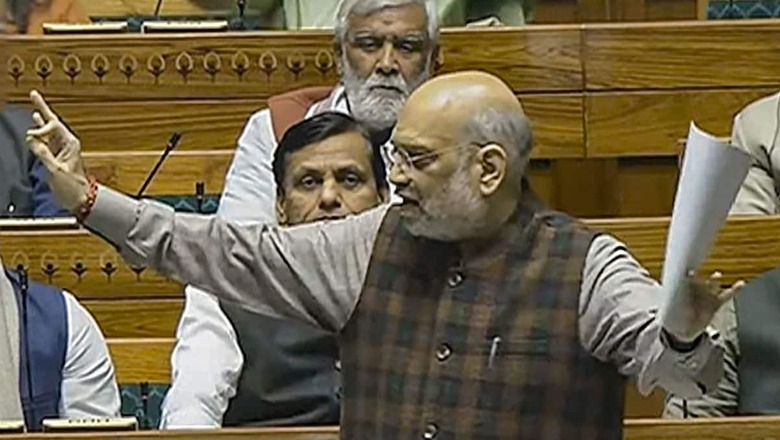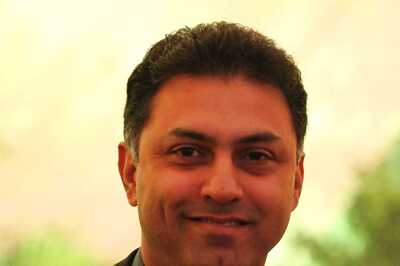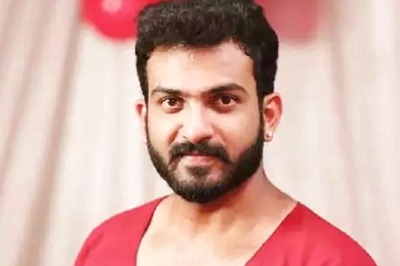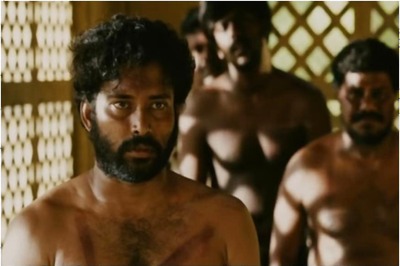
views
Introduced in Parliament on December 12 after incorporating recommendations of a parliamentary committee, the three revised bills to replace the colonial-era criminal laws were passed in the Lok Sabha by voice vote on Wednesday.
The Bharatiya Nyaya (Second) Sanhita, Bharatiya Nagarik Suraksha (Second) Sanhita and the Bharatiya Sakshya (Second) Bill will replace the Indian Penal Code (IPC), 1860; the Code of Criminal Procedure Act (CrPC), 1898; and the Indian Evidence Act of 1872. They were introduced by union home minister Amit Shah last week, but a discussion could not take place then due to the opposition’s disruption over the Parliament security breach matter.
Replying to a debate on the bills in the lower house of Parliament, Shah said the existing criminal laws were reflective of the colonial mindset with the intention to punish and not impart justice.
“The three new bills seek to establish a justice system based on Indian thinking… The three proposed criminal laws will free people from colonial mindset and its symbols,” he said before the bills were passed.
Here’s all you need to know:
- The Lok Sabha took up the three redrafted bills on Tuesday (December 19), with some MPs saying these will provide justice rather than punishment and others pointing to “loopholes” in the proposed legislations that they claimed will give discretionary powers to enforcement agencies.
- A 31-member parliamentary standing committee on home affairs headed by BJP MP Brij Lal had made several recommendations on the three bills, which were initially introduced in August, with dissent notes by opposition members. The central government had withdrawn those and introduced the redrafted bills earlier this month.
- During a debate in Parliament, former law minister and BJP leader Ravi Shankar Prasad said while there were 511 sections in the IPC, the corresponding new bill has 356. He said while 176 sections have been changed completely, eight new have been added. He also pointed out that 22 sections have been deleted.
- Some other members of the House, however, spoke about the loopholes in the clause dealing with sedition, which they said can provide discretionary powers to enforcement agencies in terms of interpretation. They said this needs to be looked into, especially with regard to the term separatist activities. This, they added, can be interpreted in several ways and used as a political tool to curb opposition parties who protest government policies.
- The Bharatiya Nyaya Sanhita (BNS) is going to be the primary legislation governing criminal offences. While it preserves several sections of the IPC, excluded from consideration are specific violations that have been invalidated or modified by judicial rulings. These include acts of adultery and same sex intercourse.
- According to the provisions of the new legislation, search and seizure operations will now be videographed through electronic devices and, for the first time, the Centre has defined terrorism. Remissions have also been rationalised in the new legislation and a new provision added to include crime related to murder on the basis of race, caste, community for which a provision of minimum seven years’ imprisonment or life imprisonment or death penalty has been made.
- Certain colonial words have been removed, especially those in rampant use even after independence. These words include ‘Parliament of the United Kingdom’, ‘Provincial Act’, ‘London Gazette’, ‘jury’, ‘barrister’, ‘Lahore’, ‘Commonwealth’, ‘United Kingdom of Great Britain and Ireland’, ‘Her Majesty’s Government’, ‘Possession of the British Crown’, ‘Court of Justice in England’, ‘Her Majesty’s Dominions’ among others.
- A total of 18 states, six union territories, the Supreme Court, 16 high courts, five judicial academies, and 22 law universities sent their suggestions. At least 142 MPs, IPS officers as well as state and central forces also sent in suggestions.
- The Centre has also claimed that electronic and digital records, email, server logs and documents available on the computer, smartphones or laptop messages, website, and locational evidence, will be used to meet the challenges. Mail messages will be available on digital devices, FIR to case diary, case diary to chargesheet judgment will be digitised.
- Issuances and servicing of summons as well as warrants and their execution will also be digital. For the examination of the complainant and witnesses, a register shall be maintained by all police stations and courts containing email addresses, phone numbers or other similar details, while summons will be duly sent by electronic means.
Why the bills were introduced
According to officials of the ministry of home affairs, there is a “colonial imprint” on the criminal law process in India. This is due to British laws enacted 160 years ago, which were intended to protect the interests of the British and their government in London, they added. Officials further said sedition and protection of treasury got precedence over murder and crime against women, as the aim was to make British rule paramount rather than safeguard human rights.
They added that complex procedures in the IPC, CrPC and Indian Evidence Act have led to high pendency of cases in courts; inordinate delay in the delivery of justice; poor and socio-economically backward communities being deprived of justice; low conviction rates; overcrowding in prisons; and a large number of undertrial prisoners.
Not the first time
This is not the first time the Centre took up the case for reforms in the criminal justice system. Previous governments, too, received recommendations. The Law Commission of India has recommended amendments in different reports with the Bezbaruah Committee, Viswanathan Committee, Malimath Committee, Madhav Menon Committee recommending reforms. The parliamentary standing committee on home affairs in its 146th report in 2010, 128th report in 2006 and 111th report in 2005, called for reforms.
However, initiated by the home ministry, the reform process finally began in 2019. The union home minister wrote a letter to all governors, chief ministers, lieutenant governors or administrators in September 2019. In January 2020, suggestions were sought from the Chief Justice of India, chief justices of all high courts, bar councils and law universities.
In December 2021, suggestions were sought from MPs, while the Bureau of Police Research and Development sought suggestions from all IPS officers. A committee was set up under the chairmanship of the vice-chancellor of the National Law University Delhi.




















Comments
0 comment